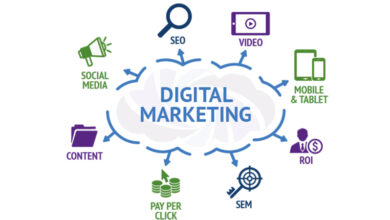
In-House vs Outsourced Payroll: Which Is Better?
About 45% of small businesses outsource their payroll. But is this a smart move?
As a business owner, payroll is a critical component of any organization. Doing it accurately and on time not only keeps your staff happy, but also protects you from fines.
While outsourcing payroll functions is quickly becoming the norm, many businesses are still keeping it in-house.
This blog will help you choose which route for outsourced payroll is the best for your company.
Table of Contents
Factors to Consider Before Choosing In-House or Outsourced Payroll
In-house payroll involves a business installing a payroll system and hosting it locally on a private cloud server.
On the other hand, outsourced payroll is a contract in which a company uses a payroll bureau software. Whether it’s on the bureau’s premises or cloud-based.
Here’s how the two compare:
Outsource Payroll through an Employer of Record
Employer of Record services providers offer a combination of local expertise and management of administrative aspects such as employment contracts, visa assistance and payroll outsourcing. The end result is a compliant global expansion where employees can enjoy in-country presence, a major factor for a successful international expansion. This makes it an ideal option since businesses can manage their employees’ tasks while outsourcing the administrative burden to the PEO. Source: INS Global
Data Security and Flexibility
Most businesses believe that data stored on their servers is safer compared to data on cloud servers. In-house payroll provides flexible data control over outsourced payroll.
This is because of its ability to transform data into reports and export it in the most basic format. Last-minute modifications to payroll are also quick and easy.
Outsourced payroll servers are generally hosted by secure cloud businesses, like Rack-space, Google Cloud, and Amazon AWS. Most of them can now export data into standard file formats like CSV and Excel for payroll customers. They offer Business Intelligence (BI) capabilities as well as the option to build customized reports.
Often, their services come as a bundle. These include actual payroll tax payments, direct transfer, payroll processing, and more.
Access to Payroll Information
Employee Self Service (ESS) is the most significant feature of information access. It reduces the number of calls to the HR office and maintains control over access levels, which might be a make-or-break aspect of a payroll system.
Outsourced payroll, on the other hand, has caught up with the current software. This has allowed equal or even greater control over access to information by employees.
It has provided the ability to control employee onboarding aspects. They include employment documentation, termination, and application process.
Electronic Services and Tax Compliance
With in-house payroll system, you’re responsible for ensuring that taxes are paid correctly. You’re also in charge of submitting annual and quarterly tax forms, as well as 1099s and W-2s.
This is a critical responsibility that requires you to have the right tools and processes in place. Completing them on time ensures you have peace of mind.
For many people, quarterly filing and tax payments are intimidating tasks. Outsourced payroll services like hrwisellc.com include:
- Accurate live paychecks
- Employee direct deposit
- Timely payroll processing
- Handle tax deductions
Ensure you work with a professional and trusted payroll service.
Cost
In-house payroll is cost-effective, depending on initial software cost and avoidance of extra expenditures, such as penalties and compliance fines.
It’s better to outsource your payroll if the upfront cost of software implementation, recurring maintenance costs, fines, and penalties surpass expenses.
In-House vs Outsourced Payroll: Which One Should You Choose?
Choosing the right payroll system depends on the number of employees, the size of your business, and the needs of your employees.
Many businesses prefer outsourced payroll processing to in-house payroll processing. This is to avoid dealing with the stringent and compliance-sensitive components of payroll. It’s best to leave it to the professionals.
To learn more about how to efficiently run your business, browse more of our blog posts!








